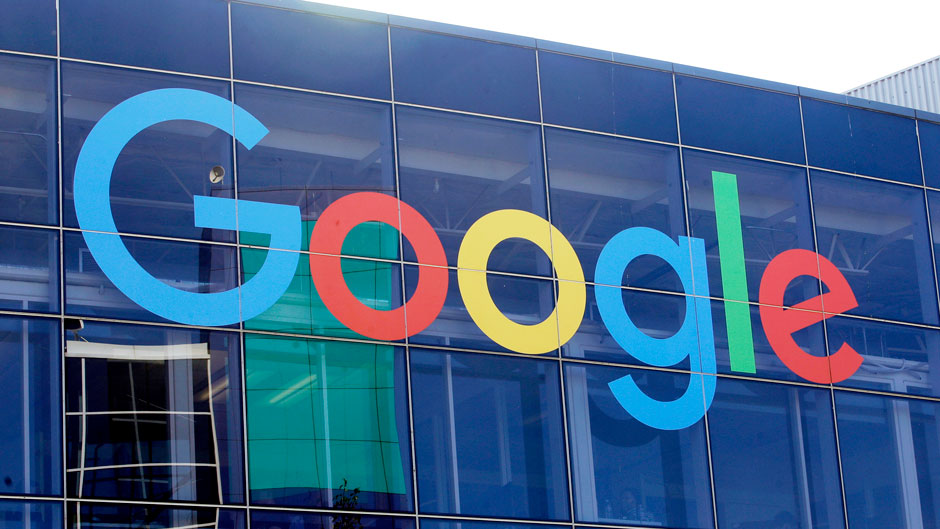In what is the largest legal challenge to a tech company in more than two decades, the Justice Department on Tuesday filed an antitrust lawsuit against Google, accusing the tech giant of stifling competition to maintain its powerful position in the marketplace for online search and search advertising.
Eleven states—Arkansas, Florida, Georgia, Indiana, Kentucky, Louisiana, Mississippi, Missouri, Montana, South Carolina, and Texas—have joined the suit.
In the 57-page complaint, filed in the U.S. District Court in the District of Columbia, the Justice Department alleges that Google achieved its powerful “grip on distribution” by paying billions of dollars to become the default search application in Web browsers, on smartphones, and on a large variety of other devices and services. As a result, Google controls roughly 80 percent of all internet searches in the United States.
“For many years, Google has used anticompetitive tactics to maintain and extend its monopolies in the markets for general search services, search advertising, and general search text advertising—the cornerstones of its empire,” the Justice Department stated in the lawsuit.
But Google called the case deeply flawed. “People use Google because they choose to—not because they’re forced to or because they can’t find alternatives,” the company said.

John Mark Newman, associate professor of law at the University of Miami School of Law, whose scholarly focus is on the economics and regulation of digital markets and platforms—with a particular emphasis on antitrust, contract, and intellectual-property issues—tells us what we need to know about the lawsuit.
Will the U.S. Government and Google try to reach a settlement? And if a settlement is not reached, how long could the trial and appeals process take?
Settlement is always an option, all the way up to—and even after—a trial. That said, the government has a duty to make sure that any settlement is in the public interest. Cases like this usually don’t get filed unless the Antitrust Division has carefully assessed the evidence and decided there really is a problem that requires addressing. So, any settlement will need to address the problems the Department of Justice is seeing. At the same time, Google may be reluctant to settle. At least according to the government’s case, Google’s conduct—while anticompetitive—is also extremely profitable. That’s a strong incentive for Google to fight this every step of the way.
Why have 11 U.S. states joined the lawsuit, and what impact could that have on the case?
States attorneys general have a long history as vigilant antitrust enforcers. In fact, it was a group of states that originally brought the high-profile case against Microsoft in the late 1990s. These states examined the evidence, as well as the draft government complaint, and decided to join the suit on behalf of their citizens. From a litigation-strategy perspective, the government would likely prefer a united front, with as many states on board as possible. So far, there are 11, but that could change. Another group of states is pressing on with its own investigation. They could file a second, broader lawsuit and ask the judge to join it with this case.
What could be Google’s defense?
One of Google’s main defenses will likely be that it’s not actually a monopoly. Google’s lawyers and economists will argue that the government is focusing too narrowly. For instance, the government’s complaint defines a relevant market as “general search.” If that’s right, then Google is by far the biggest player, and its only competitors are Bing and DuckDuckGo. Google would prefer to appear much smaller, so it will likely argue the market is actually “all search.” Through that wider lens, Google looks smaller—and it competes with Kayak, Amazon, Yelp, and dozens of other companies that provide specialized search results. How to define “the” market is a technical-sounding issue that often makes all the difference in antitrust cases like this one.
How will consumers be affected?
That probably depends on whom you ask. According to the government, Google’s conduct makes it harder for innovative new rivals to emerge that could challenge Google’s dominance. If that’s true, then the most important procompetitive benefits might not emerge immediately. It’s often hard to predict how and when exactly a dynamic new competitor will emerge and what sorts of new features it will offer. But innovation—when it is allowed to flourish—can deliver massive gains to society.
This is a lawsuit against a single company. But could this be the start of more lawsuits to curb the power of tech giants?
Absolutely! After a long drought of public monopoly enforcement, this case could revitalize an area of law that U.S. Supreme Court Justice Thurgood Marshall once called “the Magna Carta of free enterprise.” I suspect all large technology companies are monitoring this very closely.

